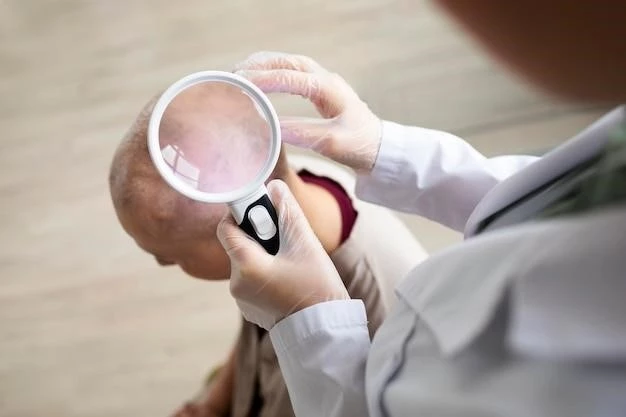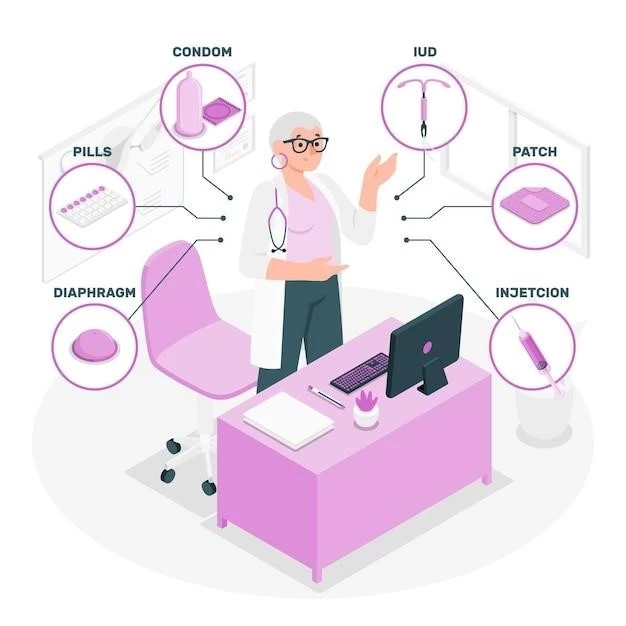Arhinia Choanal Atresia Microphthalmia⁚ Causes and Treatments
At the heart of understanding Arhinia Choanal Atresia Microphthalmia is diving into its causes and treatments. This rare condition requires a comprehensive exploration to provide the best coping strategies, genetic insights, surgical interventions, developmental challenges, support networks, and the latest research advances.

Understanding the Rare Condition of Arhinia Choanal Atresia Microphthalmia
Arhinia Choanal Atresia Microphthalmia is an exceptionally rare congenital disorder characterized by the absence of a nose (arhinia), blockage of the rear nasal passage (choanal atresia), and small or missing eyes (microphthalmia). This condition impacts the individual’s ability to smell, breathe, and see properly, posing unique challenges.
It is crucial to comprehend the complexities of this condition to provide optimal care and support. Understanding the physiological and psychological implications of arhinia, choanal atresia, and microphthalmia can help individuals and their families navigate the intricacies of daily life more effectively. By educating oneself about the condition, one can make informed decisions about treatments and interventions to enhance quality of life.
Consulting with healthcare professionals, specialists, and support groups can offer valuable insights into managing the challenges associated with Arhinia Choanal Atresia Microphthalmia. Embracing a proactive approach to learning about this rare condition is key to fostering resilience, promoting well-being, and ensuring holistic care.
Coping Strategies for Individuals with Arhinia Choanal Atresia Microphthalmia
Coping with Arhinia Choanal Atresia Microphthalmia requires a multifaceted approach that addresses physical, emotional, and social well-being. Embracing a positive mindset and seeking support from loved ones and professionals can significantly impact quality of life. Here are some effective coping strategies⁚
- Educate Yourself⁚ Understanding the condition and its implications can empower you to make informed decisions about your health and care.
- Build a Support Network⁚ Surround yourself with family, friends, and support groups who can offer emotional support and practical advice.
- Practice Self-Care⁚ Prioritize self-care activities that promote physical and mental well-being, such as exercise, relaxation techniques, and hobbies.
- Seek Professional Help⁚ Consult with healthcare providers, therapists, and counselors to address any emotional or mental health challenges you may face.
- Stay Positive⁚ Focus on your strengths, achievements, and the support around you to maintain a positive outlook and resilience in the face of challenges.
- Set Realistic Goals⁚ Establish achievable goals and celebrate small victories to boost your confidence and motivation.
Remember, coping with Arhinia Choanal Atresia Microphthalmia is a journey that requires patience, self-compassion, and an openness to exploring different coping mechanisms. By embracing a holistic approach to well-being and seeking support when needed, individuals can navigate the unique challenges of this rare condition with resilience and grace.
Genetic Factors Associated with Arhinia Choanal Atresia Microphthalmia
Understanding the genetic factors linked to Arhinia Choanal Atresia Microphthalmia is crucial for both affected individuals and their families. This rare condition is often caused by genetic mutations that can impact the development of facial structures and sensory organs. Genetic factors play a significant role in the manifestation and severity of symptoms associated with this condition.
Individuals diagnosed with Arhinia Choanal Atresia Microphthalmia may benefit from genetic testing and counseling to better comprehend the underlying causes of their condition. Genetic analysis can help identify specific gene variations or chromosomal abnormalities that contribute to the disorder, informing treatment decisions and family planning.
Furthermore, gaining insights into the genetic basis of Arhinia Choanal Atresia Microphthalmia can aid healthcare providers in delivering personalized care tailored to each individual’s unique genetic profile. By understanding the hereditary aspects of this condition, medical professionals can offer targeted interventions and support strategies to optimize outcomes and enhance the quality of life for those affected.
Surgical Interventions for Arhinia Choanal Atresia Microphthalmia
Surgical interventions play a vital role in addressing the unique challenges presented by Arhinia Choanal Atresia Microphthalmia. Depending on the individual’s specific needs and condition severity, various surgical procedures may be recommended to improve functionality and aesthetics.
For individuals with arhinia, reconstructive surgery can be performed to create nasal passages and improve breathing. Choanal atresia, characterized by blockage in the nasal passage, may necessitate surgical correction to restore proper airflow. Additionally, microphthalmia, the condition of small or absent eyes, may benefit from oculoplastic surgery to enhance vision and eye appearance.
Collaboration between different surgical specialties, such as otolaryngology, plastic surgery, and ophthalmology, is often required to provide comprehensive care for individuals with Arhinia Choanal Atresia Microphthalmia. Surgical interventions aim not only to address physical impairments but also to enhance the individual’s quality of life and overall well-being.
Prior to undergoing any surgical procedure, it is essential for individuals and their families to consult with a multidisciplinary team of healthcare professionals to discuss treatment options, potential risks, and expected outcomes. By working closely with experienced surgeons and medical experts, individuals can make informed decisions about surgical interventions tailored to their specific needs and goals.
Developmental Challenges Faced by Individuals with Arhinia Choanal Atresia Microphthalmia
Individuals with Arhinia Choanal Atresia Microphthalmia may encounter unique developmental challenges that require specialized support and intervention. The combination of nasal, ocular, and facial abnormalities can impact various aspects of development, including physical growth, sensory perception, and social interactions.
Developmental challenges may manifest in delays in speech and language development, fine motor skills, and psychosocial adjustment. It is essential for caregivers, educators, and healthcare providers to work collaboratively to address these challenges and provide tailored interventions to support holistic development.
Early intervention services, such as speech therapy, vision therapy, occupational therapy, and psychosocial support, can play a crucial role in promoting optimal development and maximizing individual potential. Targeted interventions can help overcome barriers to learning, communication, and socialization commonly faced by individuals with Arhinia Choanal Atresia Microphthalmia.
By acknowledging and proactively addressing developmental challenges, individuals with this condition can receive the necessary support to thrive and lead fulfilling lives. Building a strong network of professionals, educators, and community resources can ensure comprehensive care and holistic development for individuals with Arhinia Choanal Atresia Microphthalmia.
Support Networks for Families Affected by Arhinia Choanal Atresia Microphthalmia
Families impacted by Arhinia Choanal Atresia Microphthalmia often benefit from joining support networks that offer understanding, guidance, and a sense of community. Connecting with other families facing similar challenges can provide emotional support, shared experiences, and valuable resources.
Support networks offer a platform for families to exchange information, seek advice, and share coping strategies for navigating the complexities of the condition. Online forums, social media groups, and local support groups can serve as valuable sources of connection and solidarity for families affected by Arhinia Choanal Atresia Microphthalmia.
Through these support networks, families can access information on treatment options, educational resources, and advocacy opportunities. Additionally, connecting with healthcare professionals, therapists, and specialists within these networks can enhance the overall care and support available to individuals with the condition.
By actively engaging with support networks, families can empower themselves with knowledge, resilience, and a sense of belonging amid the challenges of Arhinia Choanal Atresia Microphthalmia. Together, they can navigate the journey with strength, empathy, and a shared commitment to the well-being of their loved ones.
Research Advances in the Treatment of Arhinia Choanal Atresia Microphthalmia
Research into the treatment of Arhinia Choanal Atresia Microphthalmia continues to drive progress and innovation in addressing this rare condition. Advancements in medical technology, genetic research, and surgical techniques offer hope for improved outcomes and quality of life for affected individuals.
Recent studies have focused on identifying novel genetic markers associated with Arhinia Choanal Atresia Microphthalmia, leading to advancements in personalized treatment approaches tailored to each individual’s genetic profile. Understanding the genetic underpinnings of the condition is instrumental in developing targeted therapies and interventions.
Surgical interventions have also seen advancements, with innovative techniques being refined to address the complex anatomical challenges presented by Arhinia Choanal Atresia Microphthalmia. Minimally invasive procedures, tissue engineering, and state-of-the-art prosthetics are being explored to optimize functional and aesthetic outcomes for patients.
Furthermore, collaborative research efforts aimed at studying the developmental implications of the condition and improving early intervention strategies are ongoing. By integrating multidisciplinary expertise and cutting-edge research findings, the medical community is striving to enhance the overall care and support available to individuals and families affected by Arhinia Choanal Atresia Microphthalmia.
Staying informed about the latest research advances in the field can empower individuals, families, and healthcare providers to make informed decisions, access innovative treatments, and participate in clinical trials aimed at furthering our understanding and management of Arhinia Choanal Atresia Microphthalmia.
